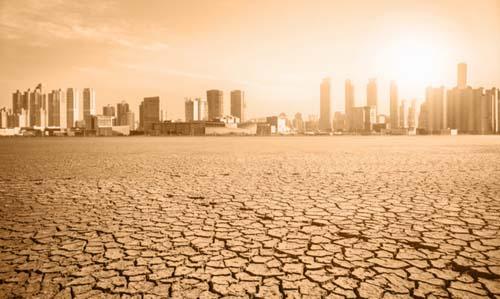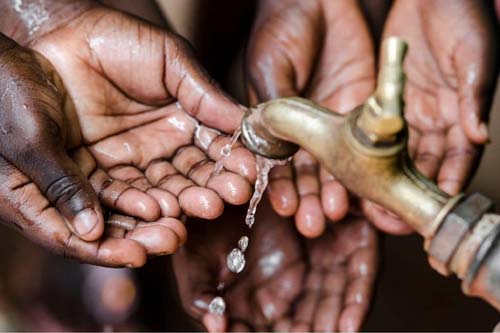
What can the private sector do to tackle water security challenges?
Aamer Sheikh
Water is not only a critical component of our food system, but a fundamental human right. It is also an essential resource for the growth and prosperity of communities worldwide. For Saudi Arabia — the eighth most at-risk country in terms of water stress according to the Washington-based World Resources Institute’s 2019 Aqueduct Water Risk Atlas — it is a particular concern.
The Kingdom has limited non-renewable groundwater reserves, which are being rapidly depleted. Due to arid climate conditions, renewable water is extremely scarce. Additionally, the high demand for water in the agricultural sector is exacerbating water scarcity and placing incredible pressure on food security in the Kingdom.
Climate change further exacerbates the problem by disrupting weather patterns, leading to severe weather events, unstable water availability, increased water scarcity and polluted water supplies. All of these can drastically affect the quantity and quality of water.

In line with Saudi Vision 2030, the government has made considerable strides in addressing water security and sustainable agriculture, working to reduce daily per capita consumption from 263 liters to 150 liters by 2030, among other aggressive goals.
Water security is no longer a distant challenge. It is an urgent one that demands collective action. The role of the private sector in this endeavor is indispensable.
At PepsiCo, we work with like-minded companies to tackle water security by doubling down on efforts to conserve and replenish water. As a company that depends on agricultural output from a high water-risk area, we are responsible for continuously looking at how we can better use, reuse and save this precious resource.
By focusing on regenerative agricultural practices at the local level to improve water security, we are building a stronger foundation for our products to help make the entire food system more sustainable. Every day we aim to progress on two fronts: Conserving water by reducing our water use and replenishing the water we use.
The water crisis needs systemic action at all levels to drive positive change for current and future generations.
We have invested in and activated several initiatives in our plants to increase water efficiency. We will continue to apply our efforts to reduce the water per production unit to 80 percent of current use. To improve water use efficiency in our wider supply chain, we are working with our potato suppliers, local farmers, irrigation consultants and energy solutions partners to apply global best practices in technology and innovation.

In addition, we are working with local farmers to grow potatoes in seasons that require less water, expanding the use of drip irrigation, scheduling watering systems and improving water distribution efficiency. We are shifting to varieties with higher yields, and we are continuously exploring new irrigation technologies.
By 2030, we want to improve water use efficiency in our agricultural supply chain by 40 percent, and by the end of 2023 we want to put 100 percent of the water we use in our Saudi snack plants back into the local watershed annually.
The water crisis needs systemic action at all levels of public- and private-sector decision-making and at the local, regional and global levels to drive positive change for current and future generations.
Working together can reduce our collective carbon footprint, feed a rapidly growing population and provide meaningful economic opportunities for more people. Every small step can significantly impact and positively influence the people in our community and contribute to a bright, and green, future for the Kingdom.
The writer is CEO of PepsiCo Middle East
